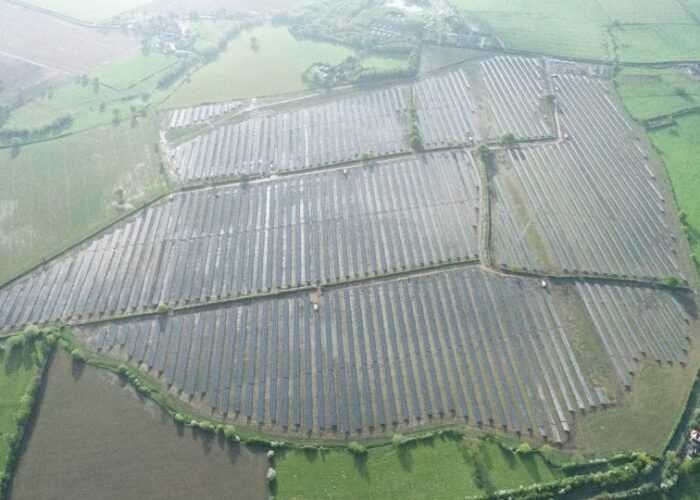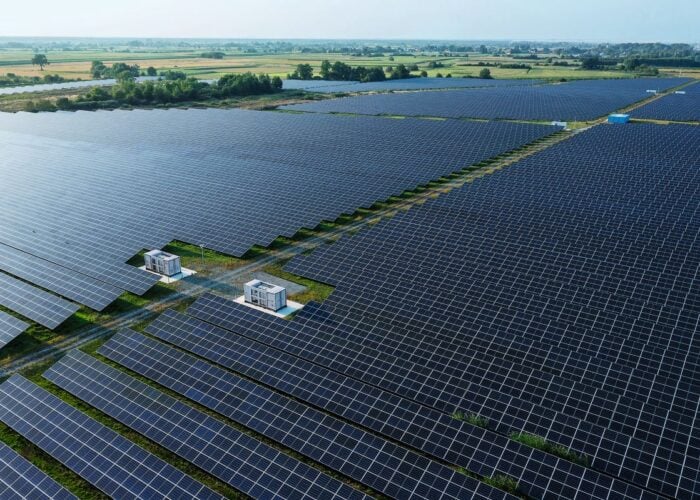
Two days, two countries, two very different stories for solar.
Yesterday, US federal legislators ended months of speculation by tabling a bill that would allow the crucial solar investment tax credit to continue until 2022. The terms of extension were almost beyond the dreams of those who had been campaigning to maintain the credit beyond its planned reduction at the end of next year.
Unlock unlimited access for 12 whole months of distinctive global analysis
Photovoltaics International is now included.
- Regular insight and analysis of the industry’s biggest developments
- In-depth interviews with the industry’s leading figures
- Unlimited digital access to the PV Tech Power journal catalogue
- Unlimited digital access to the Photovoltaics International journal catalogue
- Access to more than 1,000 technical papers
- Discounts on Solar Media’s portfolio of events, in-person and virtual
Or continue reading this article for free
Today it was the UK’s turn for solar headlines, this time for a very different story. The UK’s Conservative government this morning confirmed substantial cuts to the country’s solar feed-in tariff, which, come February 2016, will reduce it to only around 64% of its current level. Although it was not quite in the league of brutality that had been first laid out in the summer, when cuts of 87% were on the table, today’s news is going to put a serious dent in what had become a flourishing industry.
On top of that, the UK government confirmed plans to close a year earlier than expected the renewable obligation framework that has underpinned the rapid growth in the UK’s large-scale solar fleet and made it Europe’s star performer for the last two years. Gone too will be the so-called “grandfathering” arrangement that protects projects from retrospective changes in subsidies.
The contrast between the two decisions could not be starker in terms of their immediate consequences. In the US, industry analysts have predicted the ITC extension will propel solar capacity to 54% above the levels it would otherwise have reached by 2020. In the process, that market momentum is predicted to usher an era of cheap solar, with sub-4c/kWh becoming the new normal for utility-scale projects, according to one analyst. That’s a hugely significant advance not just in the US, but for solar worldwide, with other countries able to capitalise on the impact that has on costs around the globe.
In the UK, the consequences of the FiT cut will be almost the inverse – 900,000 fewer rooftop systems built by 2019, worth a possible 5.2GW, according to the government’s own analysis. The unbuilt systems will also mean a loss of jobs – 19,000, again according to government figures. By contrast, the US is expected to see around 140,000 new solar jobs created by 2022, trade body the Solar Energy Industry Association said yesterday.
New versus old thinking
Beyond their immediate implications, the decisions taken by the US and UK this week would seem to symbolise the two opposing forces that now must somehow be reconciled if the global climate deal struck in Paris at the weekend is to become worth more than the paper it was written on.
On the one hand, there is the old thinking apparently embodied by the UK, where the goal of slashing a few pounds off household bills each year is held to be more important than showing leadership in pushing forward the energy transition, even if that may mean some short-term cost.
If you think it’s going too far to write off the UK’s moderately strong leadership position on the environment until now on the basis of today’s solar decision, then it’s worth considering the multitude of other backward steps the Conservative government has taken on the environment since May this year whilst simultaneously embracing costly, risky nuclear and announcing a booty bag of perks for the fossil fuel industry. All of this adds up to outdated thinking and is wholly against the general direction of travel that most other parts of the world are now on.
On the other, America is showing that a different path is possible. No one could claim the US is all of a sudden a global environmental torchbearer, not after all it’s done in the past to scupper previous climate deals. But on solar at least it’s showing that political differences can be put aside when something is so obviously worth backing that fighting over it just doesn’t seem to make sense anymore.
It’s less than a week since the triumphant scenes witnessed in Paris, but it seems that some parts of the world are already slipping back to default positions of hypocrisy and lip service when it comes to taking meaningful action on climate change.
Then again, developments such as the one seen yesterday on Capitol Hill serve as reminders that the unity shown by world leaders last weekend can be followed up by meaningful action. In a global context the US' ITC decision this week could have much wider implications in serving as a marker for other countries to follow in delivering on the ambitions of the COP21 deal. Let’s just hope there aren't too many countries looking to the UK for leadership.






